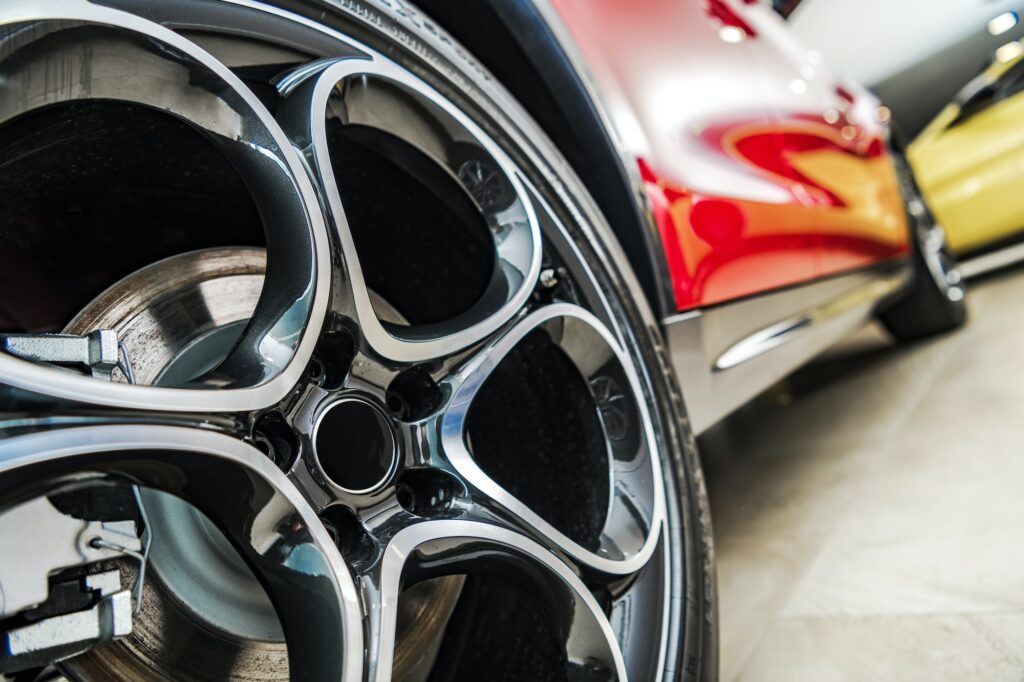As car sales continue to evolve, the future of car dealerships is an important topic to cover. Automotive technology has advanced significantly in recent years, transforming the way in which cars are sold and serviced. From online sales to telematics, it is clear that the traditional methods of car dealerships have been greatly impacted. Here we will explore how things are changing and discuss the potential implications for car dealerships moving forward.
The Changing Automotive Market
The automotive market has seen drastic changes over the last decade. From increased competition to technological innovations, car dealerships are feeling the pressure to stay up-to-date with the latest trends in order to remain competitive in this ever-evolving industry. However, despite these changes and challenges, there are still many opportunities for car dealerships to succeed and thrive in this highly dynamic market.
This article will explore the current state of car dealerships and what they need to do to remain viable amidst a shifting landscape. We will take a look at how technology is impacting their operations, as well as strategies that dealers can use to increase sales and customer engagement. Additionally, we’ll discuss potential new business models that could help keep them ahead of the curve when it comes to staying competitive in today’s automotive industry.
Traditional Dealerships: Legacy Challenges
Traditional car dealerships have been an integral part of the automotive industry for many decades. As technology advances, the traditional dealership model is being challenged to keep up with the changing landscape. Today’s customers are more educated and informed, expecting dealerships to provide a customer experience that exceeds their needs and expectations. While this may seem like a daunting task for many traditional dealerships, there are ways in which they can remain competitive in today’s market.
The first challenge facing traditional dealerships is meeting customer expectations when it comes to service and convenience. Customers want quick turnaround times on repairs and maintenance as well as easy access to information about cars they’re interested in buying or leasing. Additionally, they expect a level of personalized attention that many traditional dealerships simply cannot provide due to their limited staff sizes or lack of online presence.
Online Shopping: New Opportunities
Online shopping is revolutionizing the way consumers purchase goods and services. With online retailers making it easier than ever to shop from the comfort of one’s own homes, customers can now find what they need with a few clicks of a mouse or taps on their smartphone screen. This convenience has opened up new opportunities for shoppers, allowing them to explore options that may have previously been inaccessible or too costly.
As traditional brick-and-mortar stores continue to struggle in an increasingly digital world, car dealerships are no exception. Shopping for cars online is becoming more popular as consumers benefit from features such as vehicle comparison tools and virtual test drives that enable them to make informed decisions about their purchases without having to step foot inside a dealership showroom.
As a result, car dealers are increasingly turning to digital marketing and advertising to attract new customers.
Changing Automotive Landscape
As the automotive industry continues to evolve, car dealerships are being forced to reconsider their business models. While many traditional elements of car sales remain intact, it’s clear that new technologies and customer preferences are driving a changing automotive landscape.
The Internet has been a major factor in this shift; buyers now have unprecedented access to information about pricing and availability at the click of a button. Automakers are responding by offering digital services such as online ordering and virtual showrooms, while dealerships must become more agile and innovative if they want to stay competitive. With emerging technologies like autonomous vehicles on the horizon, car buying could look very different in the coming years. The key for dealerships is finding creative ways to meet customer needs while adapting to an ever-evolving market.
Digital Showrooms
The future of car dealerships is changing drastically with the introduction of digital showrooms. It’s no surprise that technology has been advancing over recent years, but the way it has been implemented in the automotive industry is remarkable. With digital showrooms, customers can now browse car selections online without having to step foot into a dealership. Smart cars have become increasingly popular, offering drivers an easier way to interact with their vehicles while also providing safety features that were not available before.
With digital showrooms, consumers are given more information about different makes and models than ever before. They can compare prices from various brands and even take virtual tours of the vehicles they’re interested in. This eliminates any guesswork or misinformation when it comes to making a decision on a purchase or lease agreement.
Improved Customer Experiences

The future of car dealerships is all about providing an improved customer experience. Today’s car buyers are more informed than ever before and they expect high levels of service, convenience, and value when purchasing a vehicle. As such, modern car dealerships need to evolve to exceed these expectations in order to remain competitive. This means leveraging new technology such as online shopping tools, virtual showrooms, and interactive customer support systems that make it easier for customers to find the right vehicle at the right price.
Car dealerships also need to focus on offering personalized services that cater to individual needs. From friendly sales staff who can answer questions and provide advice about available vehicles, to flexible financing options that help buyers get into their dream cars without breaking their budgets – successful car dealerships will be those that make the entire buying process simple and stress-free for customers.
Mobility Services: A New Business Model
The car dealership business model as we know it is quickly becoming outdated and obsolete. Increasingly, customers are no longer interested in buying cars outright – they prefer to access them when needed by using mobility services such as Uber, Lyft, and even car-sharing programs. Companies such as Volkswagen and Ford have started to recognize this shift in customer preference and have started offering new mobility services that offer a more flexible approach for customers.
In addition to traditional dealership models providing sales of cars, dealers can now also provide rental options, subscriptions for limited periods of time or on-demand access. This new business model is becoming increasingly popular with customers who are willing to pay for convenience over ownership. It provides an opportunity for dealerships to expand their service offerings while also increasing their profitability through additional revenue streams.
Challenges for Traditional Dealerships
As the automotive industry continues to evolve, traditional car dealerships are facing a growing number of challenges. From new technology and mobility options to changing customer expectations and preferences, it is becoming increasingly difficult for these dealerships to remain competitive in a rapidly-evolving market.
The emergence of online retailing has posed one of the biggest threats to traditional car dealerships, with customers now having more access than ever before to vehicle information, pricing details, and purchase options. This has created an environment where customers can easily compare dealer prices from the comfort of their own homes rather than traveling between multiple locations. Additionally, with companies like Tesla offering a completely online shopping experience from start to finish, traditional car dealerships have had to quickly adapt in order to keep up.
Impact of Online Shopping
Gone are the days of traditional car dealerships. The rise of online shopping has had a big impact on how people buy their cars. With many websites offering comparison-shopping and convenient payment options, it’s no wonder that more and more consumers are opting to purchase cars from the comfort of their own homes.
The convenience factor is just one of the benefits that shoppers can enjoy when they opt for online car purchases. Studies have found that buyers can save time and money by researching different makes and models before committing to a purchase, as well as taking advantage of competitive pricing options. Additionally, customers have access to detailed reviews from previous owners which can make informed decisions simpler than ever before.
Online shopping has revolutionized the way people buy cars, making it easier than ever for them to find exactly what they are looking for at an affordable price.
Benefits of Tech-Savvy Dealerships
In the ever-evolving world of car dealerships, the need for technology-savvy sales teams and digital tools is on the rise. Today’s dealerships must be agile enough to keep up with the competition while ensuring an enjoyable customer experience that keeps consumers coming back. With a focus on tech-savvy solutions, modern car dealerships can access a range of advantages that will give them a leg up in their respective markets.
The first benefit to technology-driven car dealerships is improved efficiency throughout their entire operation. Automated tools help streamline processes like scheduling test drives or collecting customer data—cutting out time-consuming manual steps while improving accuracy and reliability. This allows dealership staff to focus more on helping customers find their ideal vehicle, rather than getting bogged down in administrative tasks.
Adopting New Strategies

The future of car dealerships continues to evolve, and those who are looking to maintain a competitive edge need to look for innovative ways to do business. Adopting new strategies is one way that car dealers can stay ahead of the curve and remain relevant in an ever-changing market.
From virtual showrooms and streamlined digital platforms to embracing omnichannel shopping experiences, car dealers must think outside the box and find creative solutions to keep up with customer demands. Understanding their target audience’s needs and responding quickly with smart strategies can help them maximize sales opportunities while creating long-term customer loyalty.
New technologies are also providing exciting opportunities for businesses in the automotive industry. Automated tools, digital marketing tactics, and improved analytics can all help drive sales results by providing more personalized services for customers.
Alternative Business Models
Dealerships have an opportunity to explore a variety of new ways to reach and serve customers. By implementing alternative business models such as subscription services, streamlined trade-ins with guaranteed purchases, and online sales, dealerships are working hard to remain competitive in an evolving market.
Subscription services are becoming increasingly popular for those interested in buying a vehicle without committing to ownership long-term. Subscription programs provide flexibility for drivers who might not have had access to other financing options or who need greater flexibility than traditional leases or loans can offer. Additionally, dealership trade-ins allow customers to switch vehicles more frequently while staying within their budget by exchanging a used vehicle for a newer one with lower monthly payments. Finally, online sales enable customers the ability to purchase cars from dealerships without having to go into physical locations.
Conclusion: Adapting to Survive
In conclusion, car dealerships are facing a unique challenge in today’s market; adapting to survive. As technology advances and more traditional brick-and-mortar businesses struggle to stay afloat, car dealerships must find ways to move their business models online. This means not only offering cars for sale online but also providing customers with an entirely online experience that rivals the traditional dealership experience. By leveraging digital marketing strategies, expanding their customer base through e-commerce solutions, and utilizing social media platforms – car dealerships can remain successful despite the changing landscape of the industry. Additionally, they must focus on creating a positive customer experience both in-store and online if they want to continue to attract new customers and retain existing ones.
The future of car dealerships is uncertain, but there are many opportunities for dealerships to remain relevant in the digital age. By embracing technology, offering a more personalized shopping experience, and expanding their reach beyond their local market, dealerships can continue to thrive and remain an important part of the automotive industry for many years to come. However, it’s crucial for dealerships to adapt quickly and efficiently to the changing needs and expectations of consumers, as the rise of online retail will only continue to put pressure on traditional dealerships. Nevertheless, with the right strategy and a commitment to innovation, the future of car dealerships can be bright and prosperous.
Ultimately, it is clear that car dealerships must be willing to change and adapt if they wish to keep up with the times and remain profitable into the future.
Please rate this post

With over 20 years of experience in the car business, I’ve navigated the evolution of the industry from traditional sales to the dynamic digital age. My journey through various roles in both sales and management has endowed me with a unique perspective on the challenges and opportunities in automotive sales today.
As the founder of Shawn Ryder Digital, I combine my extensive background in technology with my deep understanding of the automotive industry. This synergy allows me to craft digital marketing strategies that are not just effective but tailored to the specific needs of each dealership. My commitment is to drive your sales, enhance your brand awareness, and ensure your dealership thrives in the digital landscape.
Here at Shawn Ryder Digital, we’re not just about providing services; we’re about building partnerships. As I often say, “In the fast-paced world of digital marketing, staying ahead isn’t just an option; it’s a necessity.”
Together, let’s embrace the challenges of the digital age and turn them into opportunities for growth and success. Join me in redefining the future of automotive digital marketing. Let’s accelerate your dealership’s journey to the top.
